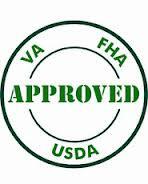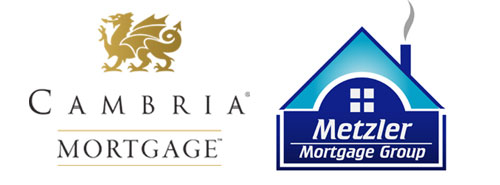-
Share via:
(651) 552-3681
Home Purchase - Home Refinance
Serving MN WI IA ND SD CO FL
- Home
- Reviews
- Apply
- Quick Qualify
- Rates & Costs
- Loan Programs
- Bad Credit Loans
- Buying a House
- Commercial / Apartment
- Doctor Loans
- FHA Loans
- Down Payment Assistance
- First Time Home Buyer
- HomeReady
- Investor DSCR Loans
- Luxury home financing
- Jumbo Loans
- Loans for Self Employed
- New Construction Loans
- No Down Payment Loans
- No Doc / Non-QM
- Refinancing
- Contract for Deed Refi
- Renovation Loans
- USDA Loans
- VA Loans
- Client Resources
- After BK or Foreclosure
- The Home Loan Process
- Daily Mortgage News
- Your credit score
- Student loans
- Homebuyer Classes
- Mortgage FAQ
- Glossary of Mortgage Terms
- Use a Bank or Broker?
- Fixed or ARM
- Home Buyers Guide
- Mortgage Rate Locks
- Long Term Rate Locks
- Mortgage Loan Limits
- No Closing Cost Loans
- Get a Second Opinion
- Tips for a smooth closing
- Top Mortgage Mistakes
- Foreclosures / Short Sales
- How to buy foreclosures
- Well and Septic
- Beware Predatory Lenders
- About
- Blog
- My Acct
Navigation- Home
- Reviews
- Apply
- Quick Qualify
- Rates & Costs
- Loan Programs
- Bad Credit Loans
- Buying a House
- Commercial / Apartment
- Doctor Loans
- FHA Loans
- Down Payment Assistance
- First Time Home Buyer
- HomeReady
- Investor DSCR Loans
- Luxury home financing
- Jumbo Loans
- Loans for Self Employed
- New Construction Loans
- No Down Payment Loans
- No Doc / Non-QM
- Refinancing
- Contract for Deed Refi
- Renovation Loans
- USDA Loans
- VA Loans
- Client Resources
- After BK or Foreclosure
- The Home Loan Process
- Daily Mortgage News
- Your credit score
- Student loans
- Homebuyer Classes
- Mortgage FAQ
- Glossary of Mortgage Terms
- Use a Bank or Broker?
- Fixed or ARM
- Home Buyers Guide
- Mortgage Rate Locks
- Long Term Rate Locks
- Mortgage Loan Limits
- No Closing Cost Loans
- Get a Second Opinion
- Tips for a smooth closing
- Top Mortgage Mistakes
- Foreclosures / Short Sales
- How to buy foreclosures
- Well and Septic
- Beware Predatory Lenders
- About
- Blog
- My Acct
What is an FHA Loan?
The quick answer is that it is a government backed mortgage loan offered by mortgage lenders that allows for a small 3.5% down payment, and easier qualifying than other home loan products.
Home buyers in the Minneapolis, St Paul, Madison, Milwaukee, Pierre, Des Moines, Fargo and throughout all of the upper-midwest, along with Colorado and Florida, have heard the name before, but did you know that FHA financing has been around for nearly 100-years, and is a very popular way to become a homeowner or refinance an existing mortgage?
With all government backed mortgages like FHA (HUD), FHA doesn't provide loans directly, rather FHA provides insurance on the loan for lenders. This helps low and moderate income families to become homeowners by encouraging mortgage companies to make loans to borrowers who might not be able to meet the stricter conventional mortgage underwriting requirements. By protecting the mortgage company against large loan defaults, more people can buy a home.
Quick Qualify For An FHA Loan
We’re here to make the home loan process a whole lot easier, with tools and expertise that will help guide you along the way, starting with our FREE FHA Loan Qualifier.
FHA vs Conventional
FHA versus Conventional Loans - Differences in Loan Guidelines
Although there are similarities between all mortgage loans in general, there are also some big differences.
- FHA mortgage rates are generally a little better than conventional mortgage loans
- Interest rates don't increase for lower scores, like a conventional loan, until your score gets below about 640
- Credit guidelines are less restrictive
- Higher debt-to-income ratio's allowed
- Lower credit scores are acceptable.
- Shorter waiting period after a bankruptcy or foreclosure
For example, an FHA loan allows for borrowers with less just OK credit to receive the same interest rate as a borrower with great credit. On a conventional loan, for ever 20 point lower score, starting at 740, the interest rate start to rise on conventional loans. FHA is also more forgiving on past major credit issues. FHA allows someone with a bankruptcy to potentially get a new loan in as little as two-years after the bankruptcy. For those with a previous foreclosure, FHA loans are possible just three-years after the Sheriff sale date.
FHA loans also have some negatives which need to be understood too:
- More picky about property condition (like peeling paint on older homes)
- Mortgage insurance is life of loan with small down payments
- Mortgage insurance is for no less than 11-years with larger down payments
ALL MORTGAGE LOANS, including FHA, have Closing Costs
Everyone understands down payment, but many first time home buyers are shocked to discover there are costs to get a mortgage loan, and these costs can sometimes be more than the down payment.
Typically borrower must pay, at the time of purchase, the costs and charges associated with buying a home. Commonly these costs are referred to as closing costs, which need to be paid in order to get the loan. Some of these costs include appraisal, credit report, origination fees, title company fees, state taxes, county recording fees, etc. You also have to pay for your first years homeowners insurance, and pre-rated property taxes up-front when buying a home.
Your closing costs can be paid five ways:
- Cash out of pocket
- Rolled into the loan - commonly called Seller Paid Closing costs (which really just means they are financed into the loan).
- Rolled into a slightly higher interest rate
- Use a down payment and closing cost assistance program
- Any combination off all of these items
Most of the time, people use a combination of all these to either eliminate, or seriously reduce the money needed up-front to buy a home.
Seller paid closing costs
Seller paid closing costs is a means of which you are financing the costs into the loan, versus paying out of pocket today. You usually have to add the amount you want rolled in on top of your offer price. For example, say you need $6,000 worth of closing costs paid, and the seller is asking $200,000 for the home. Your offer would be $206,000. It is called seller paid closing costs because on the actual purchase agreement, it is written that the seller would pay your $6,000.
As you can see, the seller got the exact $200,000 they were asking for and you financed $6,000 into the loan.
FHA allows you to roll in up to 6% of the homes purchase price, with conventional only allowing 3% with down payments less than 10%.
FHA loan down payment is just 3.50%
In contrast to many conventional mortgage products, which frequently require minimum down payments of 5%, 10%, or even 20% of the purchase price of the home, single-family mortgages insured by FHA make it possible to have a small down payment.
Your small FHA loan down payment can be your own money, like checking and savings. Taken from a retirement account, like a 401k, be a gift from a blood relative, or even come from a down payment assistance program.
Get Started on your FHA Loan in MN, WI, IA, ND, SD, CO, FL
Buying a home is easy - Follow these simple steps:
- Apply for financing
- Get Pre-Approved
- Start looking at houses with Realtor
- Make Offer
- Go through Underwriting
- Get your keys!
FHA Mortgage Insurance
FHA was created by the Federal Government to provide affordable housing financing for qualified borrowers. FHA doesn't actually lend, they just insure part of the loan, reducing the lender's risk. To cover the cost of the program, the new home owner pays into the program with Mortgage Insurance.
There are two aspects to FHA mortgage insurance. The first is an upfront insurance premium, called MIP, which can be paid in cash at closing, or added to the loan amount. Almost everyone elects to roll it into the new loan amount, so it is not an out-of-pocket expense. The borrower also pays monthly mortgage insurance. These funds go into a default pool, while covers any foreclosures, and all FHA borrowers have to pay into this fund.
FHA mortgage insurance has changed over the year, the most current change took effect in 2023, FHA mortgage insurance is required on all FHA loans, regardless of down payment size.
FHA Up front mortgage insurance premium (UFMIP)
FHA upfront mortgage insurance premium is 1.75% of the loan amount on purchase loans, and again, is usually rolled into the new loan.Streamline refinance is .55%. But streamline refinance of FHA loans originally done prior to May 31, 2009 is just .01%.
FHA monthly mortgage insurance costs: (current as of 2023)
FHA monthly mortgage insurance varies depending on the loan type, and loan-to-value.How To Calculate FHA Mortgage Insurance:
Take loan amount times mortgage insurance factor, then divide by 12 to get amount monthly. For example, a $100,000 loan, with a .75% factor ($100,000 x .0075 = $750/yr, Divided the yearly amount by 12 = $62.50 a month in mortgage insurance added to your home payment.
FHA Mortgage Insurance Premium (loans over 15-years)
Base Loan Amount Loan-to-Value Annual MIP ≤ $726200 ≤ 90% 50 bps (0.50%) ≤ $726200 > 90% but ≤ 95% 50 bps (0.55%) ≤ $726200 > 95% 55 bps (0.55%) > $726200 ≤ 90% 70 bps (0.70%) > $726200 > 90% but ≤ 95% 70 bps (.70%) > $726200 > 95% 75 bps (.75%)
FHA Mortgage Insurance Premium (loans under 15 years)
=Base Loan Amount Loan-to-Value Annual MIP ≤ $726200 ≤ 90% 15 bps (0.15%) ≤ $726200 > 90% but ≤ 95% 40 bps (0.40%) ≤ $726200 > 78% 15 bps (0.15%) > $726200 > 78% but ≤ 90% 40 bps (.40%) > $726200 > 95% 65 bps (.65%)
How Long Does FHA Mortgage Insurance Stay On My Loan?
It depends on the down payment size, or refinance equity position:
If your FHA loans starts out with less than 10% down or equity, your mortgage insurance is required for the life of the loan. The ONLY way to remove it is to refinance into a conventional loan.
If your loans starts at more than 10% down or equity, you will have mortgage insurance for at least the first 11-years of the loan.
With conventional loans, you are able to ask to stop paying mortgage insurance when you reach 80% loan-to-value (20% equity) through paying down the loan, and the homes value increasing. PMI will also go away at 78% of the original loan if you do absolutely nothing.
The ability to eliminate PMI, or eliminate it faster on a conventional loan make it an important part of the loan type decision, IF you can meet the stricter conventional loan guidelines.
Quick Qualify
We’re here to make the home loan process a whole lot easier, with tools and expertise that will help guide you along the way, starting with our FREE FHA Loan Qualifier.
How Long Will You Pay the MIP?
Term Loan-to-Value Duration ≤ 15 years ≤ 78% 11 years ≤ 15 years > 78% but ≤ 90% 11 years ≤ 15 years > 90% Full loan term ≤ 15 years ≤ 78% 11 years ≤ 15 years > 78% but ≤ 90% 11 years ≤ 15 years > 90% Full loan term
Bad Credit FHA Loans
FHA loans are not technically bad credit loans.
FHA is your best option if you are a weak credit risk, but it is NOT a bad credit loan. You have to qualify, it has to make sense, and you have to have a little skin in the game (down payment). FHA allows for a small down payment of just 3.50% with credit scores ABOVE 580, and at least a 10% down payment with credit scores from 500 - 579.
While technically possible to be approved on an FHA loan with a low score, understand that credit score alone does NOT equal a loan approval. Every little drop in credit score below about 620 makes getting an approval harder and harder.
Call us at (651) 552-3681 to discuss any low credit score situation - we'll help determine if you should apply.
Maximum FHA Loan Amounts Vary By County and State. Find out your limit with our FREE
FHA LOAN LIMIT Lookup Tool
FHA Loan Limits.
To make sure that its programs serve low and moderate-income people, FHA sets limits on the dollar value of the mortgage loan. The maximum loan amount you can get a loan for is always changing, and varies based on the county the property is located in, and if the property is a single family home, duplex, triplex, or quad. FHA does not loan on any property more than 4-units
Use our FREE Loan Limit Lookup Tool to find out the limits in your area.

HUD, The VA, and the USDA requires those who offer their mortgage loans go through a stringent approval process. We are an approved FHA, VA, and USDA mortgage lender.
We are not acting on behalf of, or under the direction of the VA or the Federal Government. HUD / FHA and the VA do not lend directly to the public, only through approved lending institutions like us here at Cambria Mortgage.
** EXPERIENCE MATTERS **
Top rated mortgage lender locally and nationally, year after year... This is because clients agree - Experienced Loan Officers with mortgage interest rates you can brag about and amazing service clearly sets us apart from the big banks and online lenders.
Address
1549 Livingston Ave, Suite 105
Saint Paul, MN 55118Contact
Main (651) 552-3681
Joe@JoeMetzler.com
Cell/Text (651) 705-6261We also call from
(651) 615-7545
(952) 486-6135License Info
Cambria Mortgage
NMLS# 322798 Branch:1888858Joe Metzler Loan Officer
NMLS# 274132. License MN #MLO-274132, WI #11418. SD #MLO.03095, ND #NDMLO274132, IA #36175, FL #LO119389, CO #100536785Privacy Policies | Disclaimers | Disclosures | Terms of Use | DMCA Notice | ADA Notice |

Equal Housing Lender. The Joe Metzler Team at Cambria Mortgage lends in Minnesota, Wisconsin, Iowa, North Dakota, South Dakota, Colorado, and Florida only. This is not an offer to lend or to extend credit, nor is this a guaranty of loan approval or commitment to lend. Information here can become out of date, and may no longer be accurate. Products and interest rates are subject to change at any time due to changing market conditions. Not all programs available in all states. Actual rates available to you may vary based upon a number of factors. Consumers must independently verify the accuracy and currency of available mortgage programs. All loan approvals are subject to the borrower(s) satisfying all underwriting guidelines and loan approval conditions and providing an acceptable property, appraisal and title report. Joe Metzler, NMLS 274132, Cambria Mortgage NMLS 322798. © 1998 - 2026.









